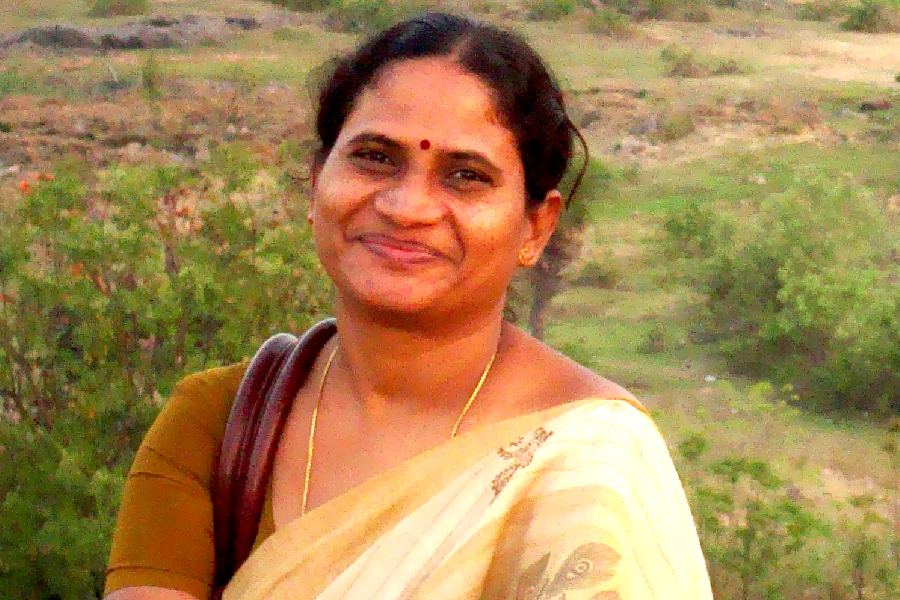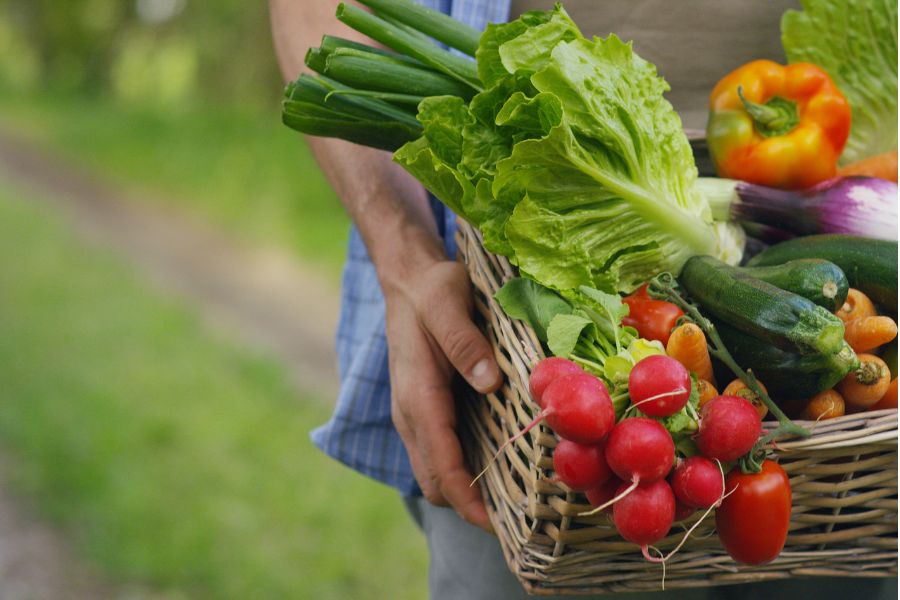Government can offer organic certificates to farmers at a special price
Padma Koppula, CEO, Aranya Agricultural Alternatives, states that the process to get organic certification done is not an easy one. It should be mainstreamed by the agriculture department in order to promote its large scale adoption.

IBT: What do you mean by ‘Permaculture Farming’ and what prompted you to adopt this model of farming?
Padma Koppula: ‘Permaculture’ is a contraction of two words – permanent and agriculture; without culture, there is no agriculture. Think of it as a permanent cycle – production and reproduction should continue for longer generations, that explains why the name ‘Permaculture’.
This ethical agricultural practice rests on three principles – care of earth, care of people, and fair share. It believes that if we Planet Earth, we will automatically be taken care of. Every life on this planet has a right to live. And fair share is like knowledge – transmitted from generation to generation, and also resource sharing. We need to judiciously use our resources and preserve them for the next generation. We need to switch from overexploitation of resources to minimalistic use of resources.
My husband, Narsanna Koppula, is a permaculture pioneer in India. He is a post graduate from Osmania University and received his Permaculture Certificate from Permaculture International Institute, Australia. He learned permaculture from Bill Mollison, an Australian professor and Indian permaculture guru Dr Venkat. Based on our interactions, we realised that unless the soil health is treated, problems of Indian agriculture cannot be treated. Thus, the concept came to India 30 years ago.
We then started working in different communities, under different NGOs, under different institutions, individuals. A permaculture functional farm was established by us in Sankareddy district in Bidakanna village. It was designed in such a way that all seasonal crops and seasonal fruits & vegetables are cultivated throughout the year.
IBT: How did you bring farmers on board to cultivate their produce according to these practices? And what benefits does this have for sustainability and growth of Indian agriculture? How can it be made profitable for farmers?
Padma Koppula: Aranya, being an NGO, cannot support the farmers financially. However, we work in collaboration with the government for different developmental projects. For example, we are working with the tribal farmers in Adilabad and Nirmal districts. We are training them to cultivate different types of crops on their fields. This will enhance the income of farmers in case of the failure of a particular crop variety. This will also protect biodiversity of the region. This will improve the soil health, local flora & fauna and consequently be beneficial to the farmers. In addition to this, we also have courses on permaculture for those who are willing to learn it.
IBT: Which crops or regions in India are better suited for this and why?
Padma Koppula: This farming practice is fairly localized. It is based on the agro climatic conditions, native seed varieties available, food habits and the available resources. It works in the drought areas, temperate countries, tropical countries, humid, arid, semi-arid, any kind of place. So, nowadays, I can see many candidates from even a dryland region like Rajasthan, coming to learn permaculture design course.
IBT: What were the initial hiccups that you faced while practicing it and how did you overcome them?
Padma Koppula: Out of our total 11.5 acres, we started by ploughing 2 acres of land. We cultivated leguminous crops through biomass mulching. But our yields were destroyed by a wildfire in the forest enveloping our farm. That was a major setback for us.
IBT: Why do a lot of farmers or farmer producer organizations in India shy away from organic certification and how can they be encouraged to get it done?
Padma Koppula: Certification at the farm level is mostly for the consumers and not for the farmers. Because each farmer cannot show the consumer “this is what I practice” or “this is what I did”. So, that’s why I feel this is for the consumers’ perspective.
In order to encourage farmers to opt for such certification, the government can provide it to farmers at a concessional rate. Also, the process to get the certification done is not an easy one. It should be mainstreamed by the agriculture department in order to promote its large scale adoption.
IBT: How is sustainable farming evolving around the world and what are the main drivers? And where does India stand on adoption of sustainable farming?
Padma Koppula: We are already experiencing different types of climate extremes. In order to deal with these circumstances, we have to change our practices. We have to work with nature. We should plant more trees. If we have a tree based system, we are protecting the environment. So many microclimates can influence the bigger climate change.
At the same time, we must introduce nutritional security. We must ensure that there is 100% food security. We need to produce good quality of agricultural produce. Lastly, after making sure that food requirements are met, farmers must be able to sell their surplus in the markets to earn a livelihood.
IBT: Which countries can India look up to for lessons on permaculture farming? And what can we learn from them?
Padma Koppula: We don’t need to look up to any other country. India is a great country because already we are into sustainable farming systems and permaculture. Several schools of thought are there. Permaculture is one such school of thought.
We need to restore whatever traditional knowledge we used to have. Maybe you need to go back and discuss more with your grandparents, what kind of practices they used to follow in their living systems, farming systems, animal systems, everything.
IBT: In states like Haryana, at the end of Kharif season, the farmers burn the stubble. That causes a lot of pollution. So while that is not a very eco-friendly practice, it is a very pocket friendly practice for them to get rid of weeds. How can such kind of ecologically harmful farming practices be addressed?
Padma Koppula: The Rayalseema area of Andhra Pradesh, is a drought prone region. Here, farmers used to burn all the crop residues. To tackle this problem we educated our farmers and created an awareness around the community. It was then that farmers started taking to composting. Everyone in the society – media, electronic media, print media, and the mainstream public representatives, farmers – has to convey this message to the farmers. Only then, will their behavior change.
Padma Koppula (CEO) is a committed social worker since nearly 20 years of work with rural farmers , Institutional development expert, irrigation expert & Gender specialist, her past services include advisory member for Andhra Pradesh Farmers Water Management Committees Association (FWMCA) , Secretary for the Bodhi Education Society, Deccan Development Society coordinator , consultant to the Govt of AP –Irrigation projects;Promoter of sustainable agriculture practices & Permaculture.













Leave a comment